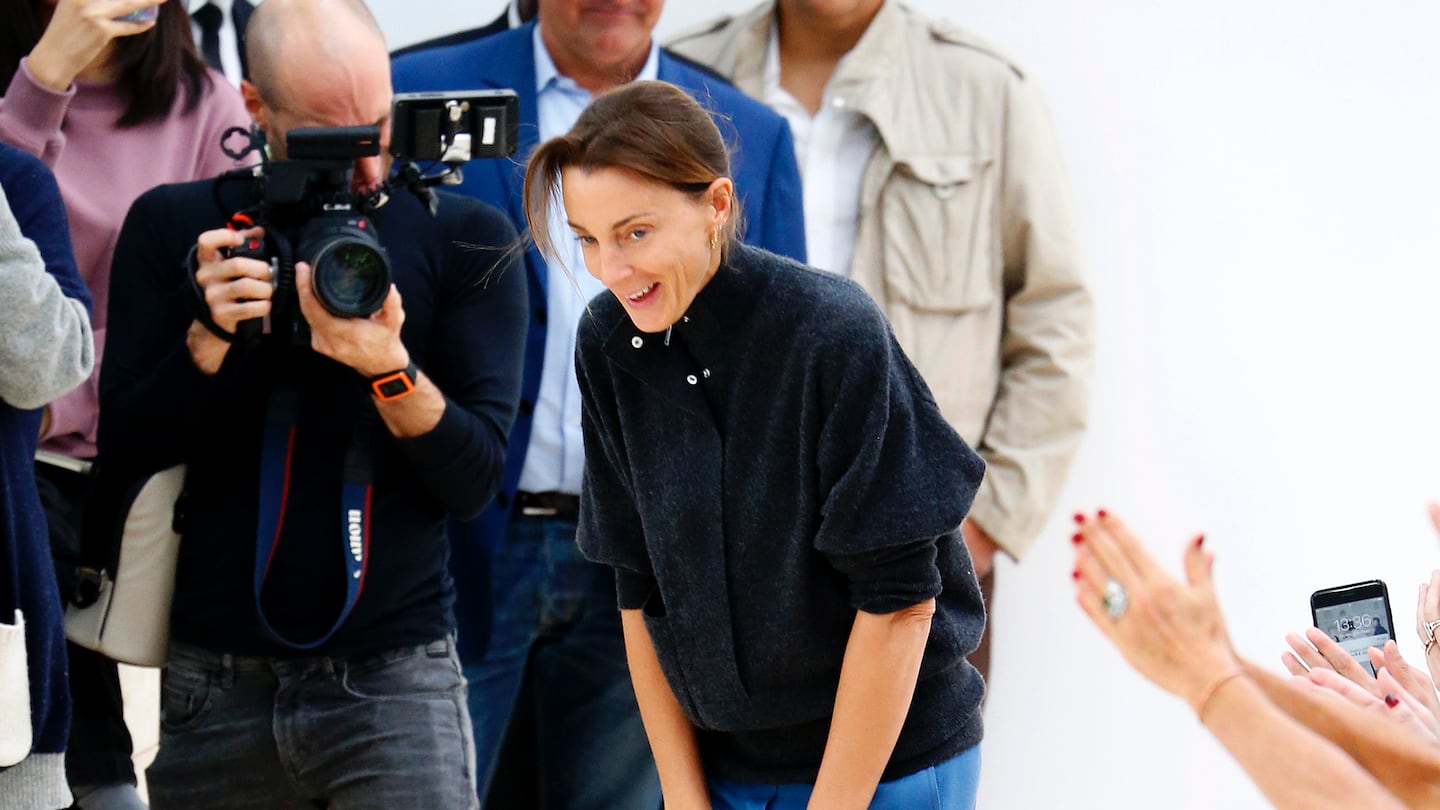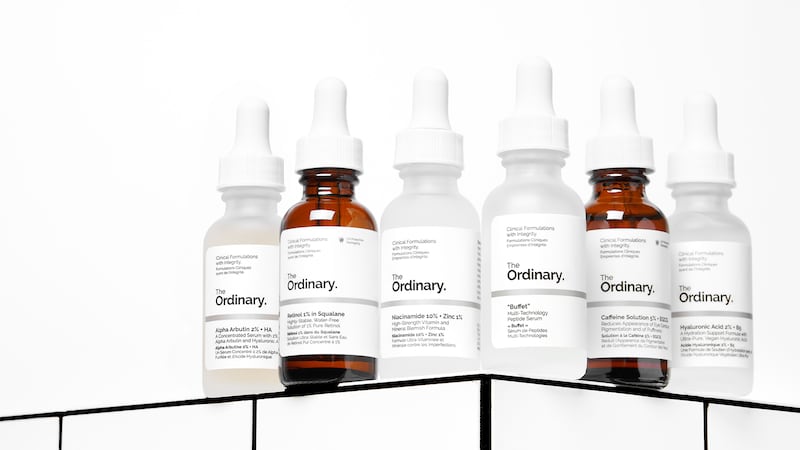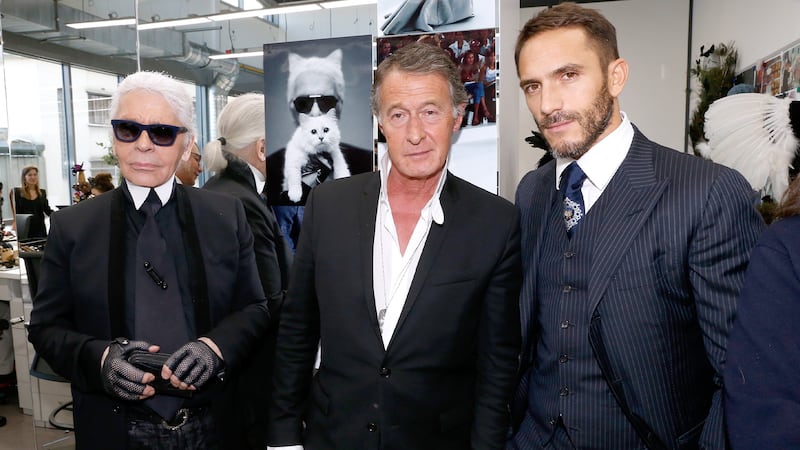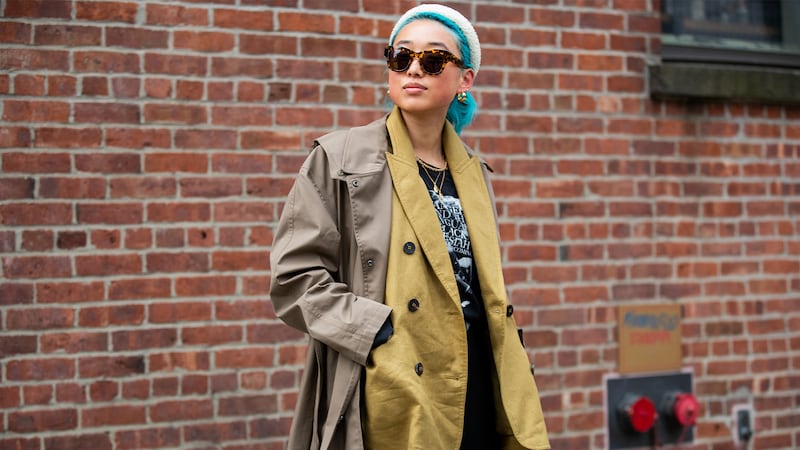
The Business of Fashion
Agenda-setting intelligence, analysis and advice for the global fashion community.

Agenda-setting intelligence, analysis and advice for the global fashion community.

This week, news of Phoebe Philo’s return to fashion with her own label after a more than three-year hiatus thrilled the industry. But the chic minimalism she brought to former employer Celine — where she delivered a successful reboot for owners LVMH, growing annual revenue from €200 million to more than €700 million by the time she stepped down at the end of 2017 — has earned her a loyal fanbase of “Philophiles” that extends well beyond fashion insiders.
LVMH is backing Philo’s new venture in return for a minority stake in the brand, named simply Phoebe Philo. But the group that skilfully manages giants like Louis Vuitton and Dior has a poor track record with start-ups. Earlier this year, LVMH announced the shuttering of the Fenty fashion label it developed with pop star Rihanna less than two years after launch.
Can Philo’s new brand grow into a business that will move the needle for the world’s largest luxury group with a market capitalisation of almost $400 billion?
Smaller labels often struggle within conglomerates like LVMH for a few reasons. For a start, they are slapped with heavy corporate charges without really benefiting from many of the synergies that can come from being part of a group as their founders struggle to navigate internal politics and bureaucracy. But most of all, smaller labels are starved for attention from senior management, who are naturally focused on the big brands that dominate their portfolios.
ADVERTISEMENT
For LVMH chief Bernard Arnault, successfully integrating Tiffany, the American jeweller the group recently acquired for $15.8 billion, is rightly top of mind and he is unlikely to have much headspace for the Phoebe Philo label.
At the same time, launching a new fashion brand with a star designer can be a very expensive and risky proposition. There is inherent risk in building a brand around a single individual. Plus, designers like Phoebe Philo come with big expectations, multi-million-dollar salaries, large creative teams and associated sampling and development costs.
Then, there’s the massive marketing expenditure required to generate awareness for a new brand. Even a superstar designer like Hedi Slimane, who has attracted a global following of “Slimaniacs,” is relatively unknown to mainstream consumers. Ditto Philo.
Factor in the capital expenditure associated with high-gloss physical stores — still critical to the luxury business model — and the scarcity of appropriate retail real estate on the world’s most prestigious shopping streets and, all told, the investment required to launch a new luxury brand in the first few years alone can easily add up to $50 million or more.
Without an existing platform like Celine, which had 120 stores and €200 million in sales when Philo joined in 2008, realising a return on that investment can take a very long time.
Could this time be different?
The rise of digital distribution is a key variable. It’s far more possible to quickly scale a young brand online than in the physical world. The digital-first Fenty misadventure suggests that it’s not easy. But what ultimately sunk the Rihanna label was a misalignment between the pop star’s fan base and Fenty’s prices. Poorly executed product only deepened the problem.
By contrast, the Phoebe Philo brand, positioned at the luxury end of the market, is a better fit for LVMH’s playbook and may be a safer place for the group to experiment with a digital-first business model. Philo’s famously anti-technology stance could prove a stumbling block, but time away from the industry may also have provided the designer with some new perspective and her strategy for the label could bypass the traditional fashion system and focus on digital channels.
ADVERTISEMENT
Of course, LVMH may also have other motives for re-aligning itself with Philo. Whether or not the new brand scales, the investment is a smart defensive play. LVMH was surely eager to keep such a talented designer close and out of the hands of rivals. Backing her label may ultimately be a small price to pay for keeping her away from the likes of Chanel, Kering and Richemont, where she could one day prove a threat.
Keeping Philo close also leaves open the possibility that she could help LVMH with a bigger project in the future, energising ultra-luxury cashmere house Lora Piana, which recently launched its first major handbag, for example, or even bringing fresh ideas to one of LVMH’s biggest brands when a creative director vacancy opens up down the road.
Philo has thus far resisted taking on another job as big as Celine — and not for lack of offers. Plus, designing a major brand while simultaneously growing a new label demands almost superhuman, Karl Lagerfeld-like energy and pace that very few in the business have come close to matching. But keeping Phoebe Philo in its orbit offers LVMH unmistakable optionality.
“Keeping her within LVMH is a great move in itself,” said Bernstein analyst Luca Solca. “Having her to contribute to one of the major brands down the road would be a home run.”
THE NEWS IN BRIEF
FASHION, BUSINESS AND THE ECONOMY

Burberry says it’s ‘confident’ Tisci will stay on as sales beat estimates. The brand said sales inched back above pre-pandemic levels during the fiscal quarter ending June 26, but it is facing fresh uncertainty following the surprise announcement chief executive Marco Gobbetti will leave for Salvatore Ferragamo at the end of the year. Chief financial officer Julie Brown said the brand has a “clear strategy” and is “very confident” creative director Riccardo Tisci will remain in place after Gobbetti’s departure. She did not comment on how long the designer is contractually bound to stay.
Richemont shakes up governance structure as jewellery sales surge. The luxury giant’s quarterly sales beat estimates by 10 percent, with revenue in its key jewellery category rising 43 percent compared to 2019′s spring quarter (before the pandemic). The company also announced that it would streamline its governance structure, relieving brand and product heads from board and senior committee duties to allow them to focus on their respective brands.
ADVERTISEMENT
Report: Agnelli heir John Elkann holds Armani tie-up talks. The scion of the family has been exploring a possible tie-up with Giorgio Armani as part of a plan to build an Italian luxury conglomerate potentially anchored around Ferrari, but his latest proposal was rebuffed earlier this month, sources familiar with the matter told Reuters.
Uniqlo owner trims profit forecast citing fresh Covid-19 related curbs. Fast Retailing’s profit rose to 227.9 billion yen ($2.1 billion) in the first nine months of its fiscal year, up nearly 70 percent compared to the same period in 2020. But external headwinds prompted the retailer to revise its full-year operating profit forecast to 245 billion yen ($2.3 billion), versus a previous estimate of 255 billion yen ($2.3 billion).
Nordstrom buys stake in Topshop with Asos joint venture. The American department store chain has acquired a minority stake in Topshop and three of its sister brands, which Asos bought out of administration in February, paving the way for a wider strategic partnership.
Asos sees sales growth slow on Covid-19 uncertainty. The online fashion retailer’s sales grew 21 percent in the four months to June 30, but uncertainty over Covid-19 and poor weather dampened trading in recent weeks. Elsewhere, the company entered a joint venture with Nordstrom to revive the Topshop brand in the US.
Hugo Boss forecasts 2021 revenue growth. The German fashion house said it expects its revenue to grow by 30 to 35 percent this year after preliminarily reporting a strong sales rebound in its second quarter. Hit hard by the pandemic, Hugo Boss has recently focused on expanding e-commerce as well as shifting toward casual clothing.
Puma raises 2021 outlook, prompted by strong Q2. The German sportswear company’s currency-adjusted sales nearly doubled in the period to €1.6 billion ($1.89 billion). It now expects sales to rise by at least 20 percent in 2021. It previously forecast sales growth in the mid teens for the year. The company said it expects earnings before interest and taxes (EBIT) to land between €400 and €500 million ($472-$590 million) in 2021.
Brunello Cucinelli raises 2021 sales forecast again. The Italian luxury group raised its 2021 sales guidance for the second time this year after revenues jumped in the three months to June, accelerating its recovery from the low point of the pandemic. The company said revenues soared by almost 60 percent at constant exchange rates in the first half of the year to €314 million ($371 million) compared with the same period of 2020.
Victoria’s Secret billionaire is selling $745 million of stock. Les Wexner is selling stock in the lingerie label’s owner, L Brands, which has seen its share price soar more than 700 percent from a five-year low in early 2020. While Wexner is slashing his stake, he will retain around a 10 percent stake in the company. The sale is set to close July 19.
Report: Sportswear brand Fabletics preps for IPO. The Kate Hudson-backed brand has tapped banks with an eye to going public, The Wall Street Journal reports. The company, which is owned by TechStyle Fashion Group, is targeting a valuation of more than $5 billion, according to the report, which cites people familiar with the matter.
Boohoo partners with Kuwait’s Alshaya to grow Debenhams in Middle East. The British online fashion retailer said Alshaya, a franchise operator which runs Debenhams stores in shopping malls, will have exclusive rights to operate the stores and a local e-commerce platform in Kuwait, Saudi Arabia, the United Arab Emirates, Bahrain, Egypt, Oman and Qatar.
De Beers raises rough diamond prices. The top producer increased prices by about 5 percent at its July sale, with most of the rises focused around higher-quality stones, Bloomberg reported, citing people familiar with the matter. The Anglo American Plc unit raised prices at almost every sale this year, helping make up for 2020′s sales collapse due to the pandemic.
THE BUSINESS OF BEAUTY

The Ordinary expands brick-and-mortar offering with Sephora tie-up. On Friday, the Deciem-owned brand will begin selling 24 of its products in Sephora stores in Canada and the US. The Ordinary has been sold on Sephora’s website since 2017.
Walmart taps Gen Z-focused brand Bubble as its first DTC skin care partner. The American mega-retailer said that it will become the exclusive retail partner for direct-to-consumer skin care brand Bubble. Its product line-up debuts in both Walmart stores and online on July 15, first through back-to-school-themed pop-ups before it lands in almost 4,000 Walmart stores.
Fan Bingbing reboots beauty brand. Fan Beauty Secret has re-registered its accounts on Weibo, WeChat and Xiaohongshu. It’s also changed the names of its e-commerce flagship stores on Tmall and Douyin, both of which are due to officially relaunch at the end of this month.
PEOPLE

Lagerfeld-era image director Éric Pfrunder has left Chanel. Pfrunder has retired from Chanel after nearly four decades in its employ. After the death of Karl Lagerfeld, Pfrunder was entrusted to lead the brand’s creative side along with artistic director of fashion collections, Virginie Viard.
Moda Operandi appoints chief merchandising officer. The e-commerce site has named April Hennig to the newly created role, effective August 30. The former president of Los Angeles-based brand Jonathan Simkhai will oversee product strategy, category expansion, merchandise planning and brand partnerships and experiences.
Mackage appoints new CEO, plans to phase out fur. The Canadian luxury outerwear company has named fashion industry veteran Tanya Golesic as its new chief executive, and will release a timeline detailing upcoming environmental initiatives — including the phasing out of fur — in September.
Endeavor’s On Location makes executive hires. David Geithner, the former chief financial officer of Condé Nast joins the live events company (whose parent Endeavor now owns select New York Fashion Week events after acquiring IMG in 2013) as executive vice president of strategy and business development. Jaime Weston joins as chief marketing officer, after most recently serving as executive vice president of consumer marketing for Universal Music Group.
MEDIA AND TECHNOLOGY

Margaret Zhang’s Vogue China to street cast September cover star. The magazine’s September issue will be publicly cast through a “Hello New Face” initiative launching July 14 on Vogue China’s Vogue Club app. A post on the title’s Weibo page called out to followers that are “bold, fun, looking to try something new, independent, talented and passionate about fashion” to sign up for a chance to be featured on the cover.
Apple, Goldman plan ‘buy now, pay later’ service to rival Affirm. The tech giant is working on a new service to let consumers pay for any Apple Pay purchase in instalments over time. The project is known internally as Apple Pay Later and will use Goldman Sachs for the loans needed for the instalment offerings, according to a Bloomberg report citing people with knowledge of the matter.
Walmart’s Flipkart raises funding at $37.6 billion valuation. Investors including SoftBank joined Walmart in injecting $3.6 billion of fresh capital. The funding round is a boon for both Flipkart and Walmart, which bought a majority of the Indian company three years ago for $16 billion and has been working toward an initial public offering for the business.
Compiled by Darcey Sergison.
Disclosure: LVMH is part of a group of investors who, together, hold a minority interest in The Business of Fashion. All investors have signed shareholders’ documentation guaranteeing BoF’s complete editorial independence.
The Hood By Air co-founder’s ready-to-wear capsule for the Paris-based perfume and fashion house will be timed to coincide with the Met Gala in New York.
Revenues fell on a reported basis, confirming sector-wide fears that luxury demand would continue to slow.
IWC’s chief executive says it will keep leaning into its environmental message. But the watchmaker has scrapped a flagship sustainability report, and sustainability was less of a focus overall at this year’s Watches and Wonders Geneva.
The larger-than-life Italian designer, who built a fashion empire based on his own image, died in Florence last Friday.